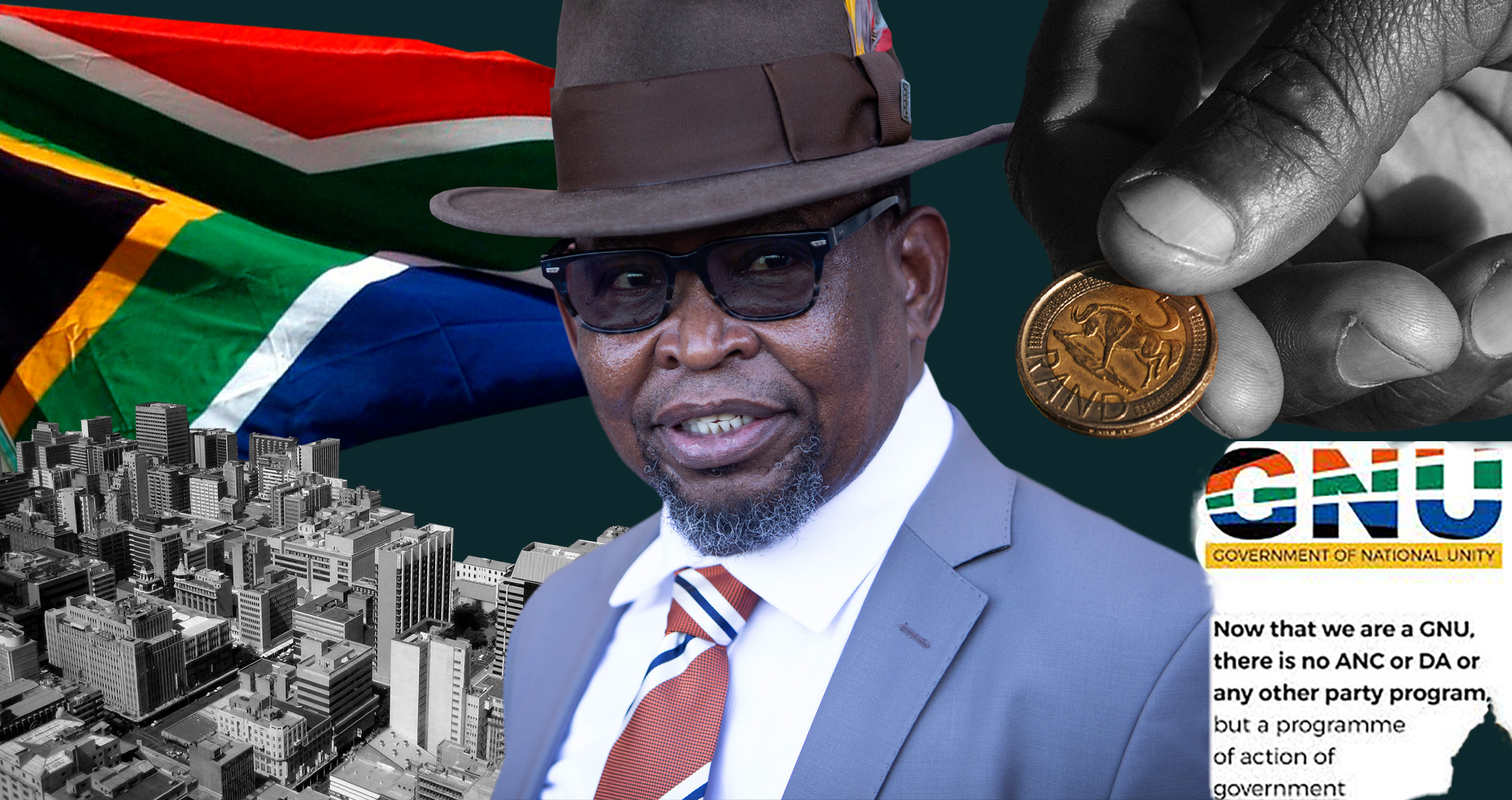The Budget 2025 presentation was pulled dramatically for, I think, the first time in history, so we are in “uncharted territory”. May I suggest everybody take a swig every time you hear that phrase (assuming you weren’t going to anyway).
The one thing we know about the Budget, because a bunch of politicians mentioned it (including the Speaker of Parliament), is that the reason for the postponement was that Treasury was proposing a 2 percentage point VAT increase. This was about when all, or most of the other parties in the Government of National Unity (GNU), completely lost their balloons.
So, of course, there are more than a few residual questions. First, why did the ANC decide to slam that proposal on the table? The simple answer, we can assume, is that their hands were more or less forced because tax receipts had underperformed for the umpteenth time. But had they underperformed by that much? Technically, we don’t know because the information is confidential, but since all the Budget documents were printed and distributed to the entire press corps and leading economists, my guess is that this is already pretty widely known.
At this point, my best guess is that Treasury was a little short but decided, if they were going to announce a VAT increase, they might as well go hell for leather and get government debt under control as well as the usual round of ANC’s incremental increases we usually get. I could be wrong, but this will emerge in time.
There is an additional question: Why did Treasury think a 2 percentage point hike would not spark a political crisis in the GNU? Was that just short-sighted, or are we into crisis negotiations here? In other words, did the ANC propose the 2 percentage point increase knowing that they would probably have to bring it down to the number they were thinking of in the first place, which was a 1 percentage point increase. This seems to me very unlikely: Treasury really just doesn’t operate that way. Once again, I could be wrong, but I think they genuinely thought it was the right thing to do.
But was it? And the reason to ask the question was that the previous VAT increase was a bit of a disaster. That was the announcement to increase VAT from 14% to 15% in April 2018 by Finance Minister Malusi Gigaba.
The history and circumstances of that time are worryingly similar to the situation today. Government was facing a revenue shortfall of about R48.2-billion. Bailouts were necessary for Eskom, SAA and the SABC. Income tax increases were ruled out because taxpayers were overburdened and corporate tax was left unchanged to maintain investor confidence.
How this turned out was extremely disappointing for the government. At the time of the 2018 Budget presentation, the government said they expected the VAT increase to raise R22.9-billion. In fact, VAT revenue for 2018/19 did increase from R289-billion to R324.6 billion, up from R298-billion in 2017/18, a R35-billion increase.
The problem is that because of inflation and other factors, the revenue increase would probably have been about R32-billion anyway. Hence, actual additional revenue from hiking the VAT tax came in at only about R3.7-billion.
Why did the politically unpopular 2018 VAT increase have such a muted impact? Well, we are into the area of hypotheticals here, but it didn’t help that growth had generally been low, so discretionary spending on goods and services was also pretty low. And don’t forget, this was the period that SARS was beginning to struggle with governance issues.
Some limited improvements have been made on these fronts. In the 2018/19 financial year, GDP growth came in at 0.8% (as opposed to the 1.5% expected). Growth is expected to come in at around 1.8% this year, which seems more likely. But apart from that, the general story is more or less the same: growth is too low; debt is too high; SOEs still need bailing out.
The 2018 VAT increase does help explain two things though. It helps explain why Treasury thought it necessary to punt a 2 percentage point increase rather than a 1 percentage point increase. And it does help explain the opposition by the DA and other parties in the GNU to the increase, because if it didn’t work then, why will it work now?
In short, a VAT increase was not the solution then, and it is not the solution now. Just proposing the increase underlines what I and a gazillion economists have been writing for years now: The ANC has yet to confront its structural failure. Constantly increasing government spending in the face of every assorted demand and political whim cannot go on for ever. Eventually, as then UK Prime Minister Margaret Thatcher once famously intimated: “The problem with socialism is that you eventually run out of other people’s money.” DM
Business Maverick
After the Bell: What the 2018 VAT hike tells us - and doesn’t - about Budget 2025 postponement





